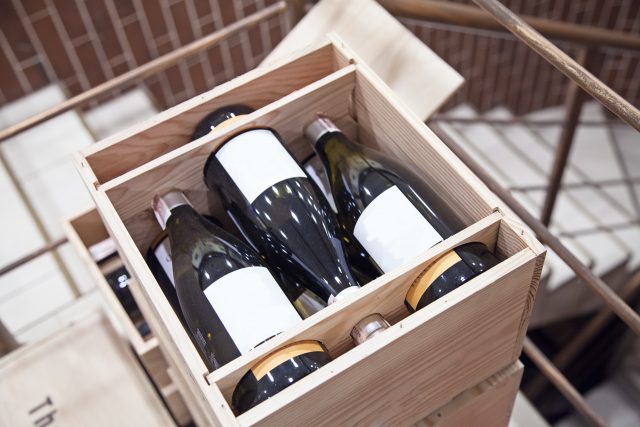This website uses cookies so that we can provide you with the best user experience possible. Cookie information is stored in your browser and performs functions such as recognising you when you return to our website and helping our team to understand which sections of the website you find most interesting and useful.
How a timber shortage is affecting fine wine
One of fine wine’s defining features are the wooden cases used to pack it, but according to one producer, there’s barely enough of the natural material for this year’s releases.

According to Manuel Louzada, the managing director of Chilean wine icon Almaviva, one of the challenges for the 2019 vintage, which was released by La Place de Bordeaux today, concerned finding enough wood to make the cases to house the wine.
During a discussion about this year’s release of Almaviva and its second wine EPU, he said that while last year’s challenge concerned the tight Covid-related restrictions in Chile, this year it was other factors that were hampering the release.
Chief among these were logistical issues and a shortage of packaging materials.
He said, “We have had some difficulty finding wooden cases for Almaviva and EPU, but luckily we started packing the wines earlier than usual – by the end [of this process] the number of cases in the market was small.”
When asked why, he said that a lot of the wood produced in France that’s used to make the boxes was now going to China.
It has also been noted, for example by the BBC, that a current timber shortage has been caused by forest fires in the US, wood diseases across Europe, as well as a post-pandemic surge in demand for the material to fuel a construction boom worldwide, exacerbated by a rising call for more sustainable building materials.
The immediate impact of this shortage has been seen in the price of timber, which, according to the Architects’ Journal, has gone up 23% over the course of last month month and 64% over the past year.
Meanwhile, Louzada said there were “big logistical issues all over the world”, and, as a result, he started shipping the 2019 releases of Almaviva and EPU 4-6 weeks earlier than usual to ensure that the wines would reach Bordeaux in time to be disseminated by the city’s négociants over the course of the next few weeks.
To guarantee that the wines arrived in France in the best possible condition he stressed that Almaviva only use refrigerated containers to ship the bottles.

